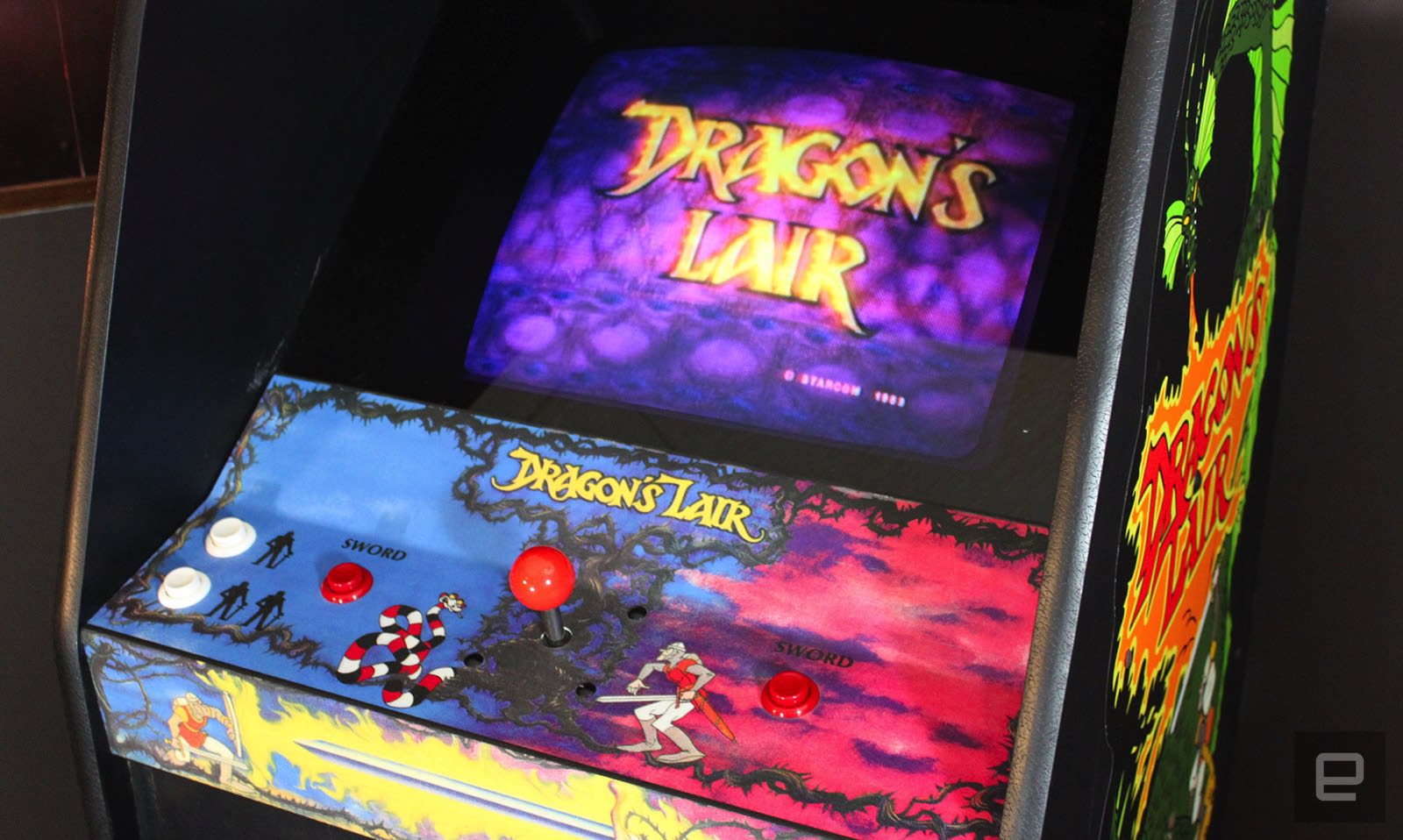You are using an out of date browser. It may not display this or other websites correctly.
You should upgrade or use an alternative browser.
You should upgrade or use an alternative browser.
Star Citizen Discussion Thread v11
- Thread starter Sir.Tj
- Start date
-
- Tags
- star citizen
- Status
- Thread Closed: Not open for further replies.
SC's latest video - not much of anything interesting. The ending was fun though - "What did we learn this year?" asked Disco Landrover.
Ci-G still didn't release any games - that's what we learned.
Ci-G still didn't release any games - that's what we learned.
Ci-G still didn't release any games - that's what we learned.
Isn't that a priori at this point and for the following year(s)?
Oh my.
“Privateer 2 will be in the Privateer format only better designed and thought out”
Yeah, that's definitely what P2 was, Chris. Your grasp on gaming was as solid then as it is now.
Last edited:
Ci-G still didn't release any games - that's what we learned.
Well that depends how you define 'release' - because you fail to understand that CiG are doing what has never been done before. This means that the tired old paradigms of 'released', 'finished' or 'working' no longer apply, and dullards like you are unworthy of our messiah, The One and Only 'Crisco Robber', praise be the name of the one true developer.
So whereas other companies would have created a playable game, tested it and released it for people to buy (after 8 years and $250M), CIG have created an imagined framework, within which every possible form of gameplay can both exist, never happen and never ever have been imagined, and hence can allow people to gift their dreams (in the form of dollars) in praise of the imagined ultimate fidelity (and maybe the vibrant transcendental benediction of passing Thetans) of 'The Vision'.
Or......
Well that depends how you define 'release' - because you fail to understand that CiG are doing what has never been done before. This means that the tired old paradigms of 'released', 'finished' or 'working' no longer apply, and dullards like you are unworthy of our messiah, The One and Only 'Crisco Robber', praise be the name of the one true developer.
So whereas other companies would have created a playable game, tested it and released it for people to buy (after 8 years and $250M), CIG have created an imagined framework, within which every possible form of gameplay can both exist, never happen and never ever have been imagined, and hence can allow people to gift their dreams (in the form of dollars) in praise of the imagined ultimate fidelity (and maybe the vibrant transcendental benediction of passing Thetans) of 'The Vision'.
Or......
Its probably quantum.
He's a visionary!
EDIT: Oh he talked about the further future too...
The 'games as interactive movies' thing really has been a monkey on his back since WC.
Last edited:
He's a visionary!
EDIT: Oh he talked about the further future too...
The 'games as interactive movies' thing really has been a monkey on his back since WC.
Well, that's because its never been done before!

Holy Mother, that game was probably the prototype for the fricken QTE.Well, that's because its never been done before!

its always incredible to see how other games are bashed and ridiculed on a constant basis because of high (but unfulfilled) expectations but when it comes to Star Citizen every past mistake, every broken promise, every disappointment is instantly forgiven and CIG given another chance, its like watching a kid or niece making its first steps and falling over but getting encouraged to keep trying, not a company that takes your money.
its always incredible to see how other games are bashed and ridiculed on a constant basis because of high (but unfulfilled) expectations but when it comes to Star Citizen every past mistake, every broken promise, every disappointment is instantly forgiven and CIG given another chance, its like watching a kid or niece making its first steps and falling over but getting encouraged to keep trying, not a company that takes your money.
Choice-supportive bias - Wikipedia
wikipedia said:Choice-supportive bias or post-purchase rationalization is the tendency to retroactively ascribe positive attributes to an option one has selected and/or to demote the forgone options. It is part of cognitive science, and is a distinct cognitive bias that occurs once a decision is made. For example, if a person chooses option A instead of option B, they are likely to ignore or downplay the faults of option A while amplifying or subscribing new negative faults to option B. Conversely, they are also likely to notice and amplify the advantages of option A and not notice or de-emphasize those of option B.
What is remembered about a decision can be as important as the decision itself, especially in determining how much regret or satisfaction one experiences. Research indicates that the process of making and remembering choices yields memories that tend to be distorted in predictable ways.
In cognitive science, one predictable way that memories of choice options are distorted is that positive aspects tend to be remembered as part of the chosen option, whether or not they originally were part of that option, and negative aspects tend to be remembered as part of rejected options. Once an action has been taken, the ways in which we evaluate the effectiveness of what we did may be biased. It is believed this may influence our future decision-making. These biases may be stored as memories, which are attributions that we make about our mental experiences based on their subjective qualities, our prior knowledge and beliefs, our motives and goals, and the social context. True and false memories arise by the same mechanism because when the brain processes and stores information, it cannot tell the difference where they came from.
A lot of money has been pledged by the Star Citizen whales, e.g. Concierge.
If you're in the UK and like making coffee, now's your chance!
Source: http://reddit.com/r/starcitizen/comments/edan9n/barista_wanted/
 cloudimperiumgames.com
cloudimperiumgames.com
Source: http://reddit.com/r/starcitizen/comments/edan9n/barista_wanted/
404: This page could not be found
Source: http://reddit.com/r/starcitizen/comments/edbf88/holiday_promotion_2019/


Holiday Promotion 2019 - Roberts Space Industries | Follow the development of Star Citizen and Squadron 42
Roberts Space Industries is the official go-to website for all news about Star Citizen and Squadron 42. It also hosts the online store for game items and merch, as well as all the community tools used by our fans.
robertsspaceindustries.com
Why does a Barista need Jira?
So they can schedule adding the milkWhy does a Barista need Jira?
- Status
- Thread Closed: Not open for further replies.



